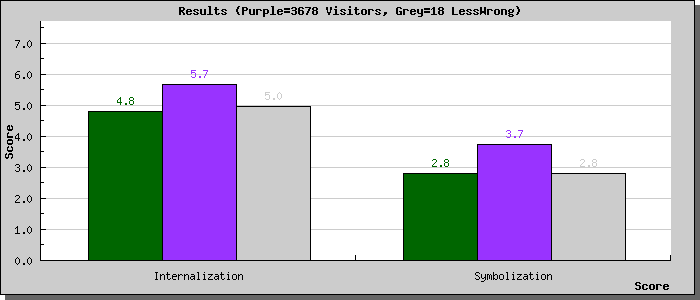YourMorals.Org |
||||
| Home |
Logout | Explore Your Morals | About Us | Links |
| Welcome gwern0@gmail.com - logout | ||||
|
The scale you completed was the "Moral Identity Scale" which was developed by Aquino and Reed (2002).
The scale is a measure of the degree to which people's self-concepts center on moral traits. Our self-concepts (i.e. our ideas about who we are) are often based on general traits that we think we do or do not possess. For example, someone's self concept may include being honest, hardworking, a little stubborn, and outgoing. There are various types of traits but a general distinction exists between moral and non-moral traits. For example, being honest, kind, compassionate, or generous are all considered moral traits. In contrast, being intelligent, ambitious, curious, attractive, or funny are all considered non-moral or pragmatic traits (because they are not explicitly tied to moral principles and values). The idea behind the scale is that people vary on this dimension, as some consider their morality to be central to their identities, whereas others consider more pragmatic traits to be central to their self-concepts. The Moral Identity Scale has two separate dimensions. The first dimension is called Internalization and it taps the degree to which moral traits are central to the self-concept, so this is a more private aspect of moral identity. The second dimension is called Symbolization and it refers to the degree to which the traits are reflected in the respondent’s actions in the world; it taps a more general sensitivity to the moral self as a social object whose actions in the world can convey that one has these characteristics. This is the more social aspect of moral identity. Your Score (in green): You are a member of the group:LessWrong and those results are shown with the Grey bar.  To learn more, you can read this paper: Aquino, K., & Reed, A. (2002). The self importance of moral identity. Journal of Personality and Social Psychology, 83(6), 1423-1440. |
Return to the "Explore" page.
|